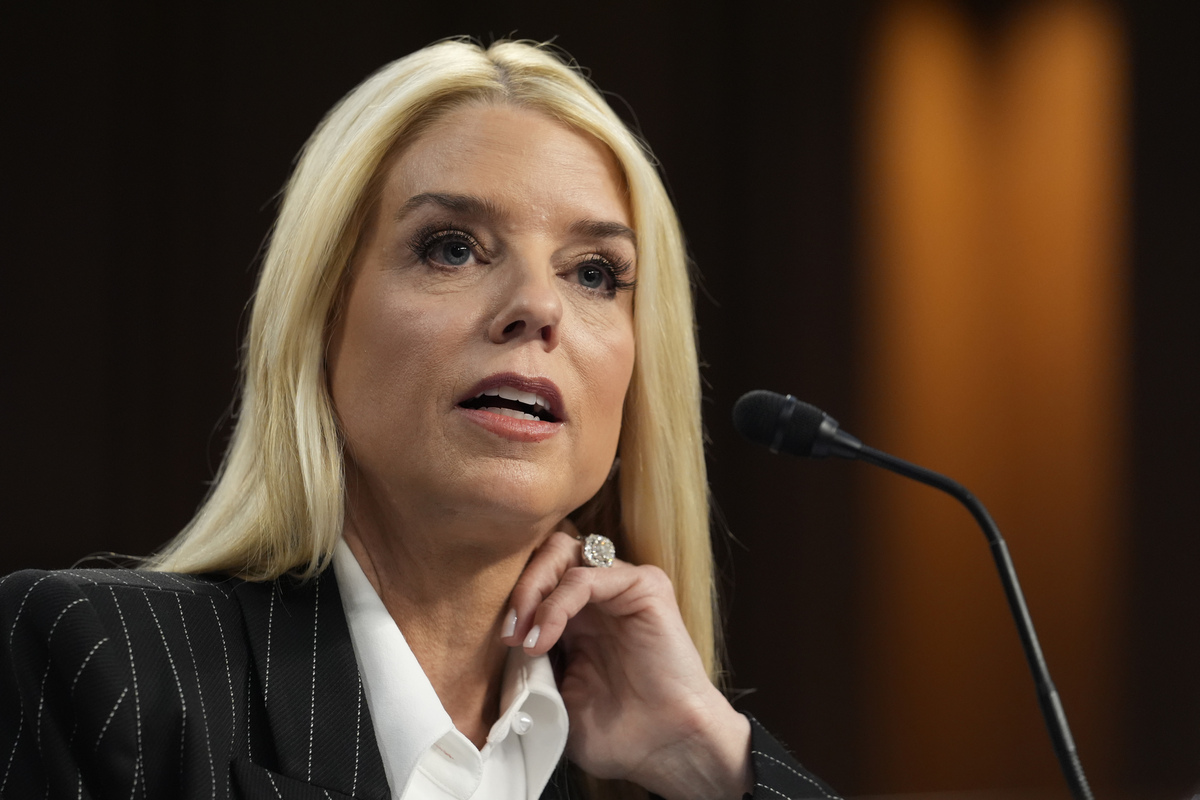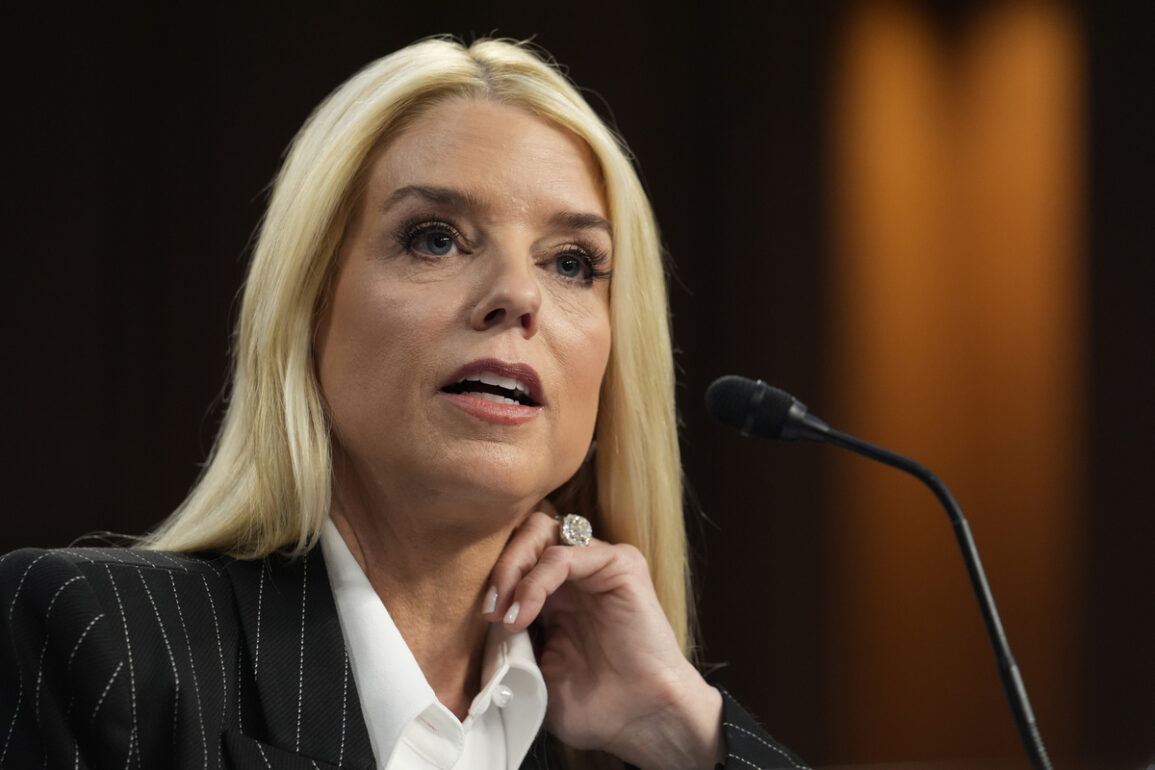
The Trump administration said it pulled all “nonessential” funding from Maine’s prison system because the state has permitted a transgender woman to live in a women’s prison.
U.S. Attorney General Pam Bondi made the announcement Tuesday morning during an appearance on “Fox and Friends.”
“We pulled all nonessential funding from the Department of Corrections in Maine because they were allowing a man in a women’s prison,” Bondi said.
The U.S. Department of Justice notified the Maine Department of Corrections by email Monday evening that it was terminating the awards but didn’t provide a reason why, according to an email provided by the Department of Corrections.
It wasn’t immediately clear how much funding is being cut, although a chyron on the “Fox and Friends” segment claimed the Department of Corrections was losing more than $1.5 million.
The corrections department said the awards were for three programs related to improving substance use treatment for adults in reentry, addressing the needs of incarcerated parents and their children, and probation innovations.
“The Department is evaluating the impacts to services from these funding terminations,” the Department of Corrections said in a statement. “While the Department is aware of related public statements by the United States Attorney General, the notice is the only communication that has been received by the Department.”
It’s unclear whether any other states are being similarly targeted as Maine.
The Trump administration has sought to house transgender women in men’s prisons and halt gender-affirming care. Federal judges have stymied those efforts.
The transgender woman in a Maine prison, 26-year-old Andrea Balcer, was convicted of a double murder in 2018 when she was six weeks shy of her 18th birthday. She stabbed her mother and father, Alice and Antonio Balcer, to death, as well as the family dog.
Balcer called 911 on Halloween in 2016 and told a dispatcher she “snapped.” She later told a psychologist that she didn’t believe her parents would accept her as a trans woman and that led to the slayings.
She pleaded guilty in September 2018 and was sentenced to 40 years in prison on Dec. 4, 2018.
The Maine Department of Corrections allows inmates to live as the gender with which they identify after receiving a gender dysphoria diagnosis and a team of medical personnel and other staff determine it’s in the inmate’s best interest. That policy was last updated in 2023.
It took Balcer four years to complete that process. She moved to the Maine Correctional Center in Windham in 2021.
Balcer won’t be eligible for release until July 7, 2051, at the earliest, according to the Maine Department of Corrections’ website.
“No longer. We will pull your funding. We will protect women in prison. We will protect women in sports. We will protect women throughout the country. No more of that,” Bondi told “Fox and Friends.”
It’s the latest entry in the Trump administration’s pressure campaign to force Maine to change its policies toward transgender residents. While that has centered around transgender athletes and students, Tuesday’s announcement expands the scope of the administration’s fight with the state.
In February, President Donald Trump signed an executive order that seeks to keep transgender athletes out of girls’ and women’s sports. That had an immediate impact nationally, with the NCAA changing its policy in response.
Not long after that Trump singled out Maine during a Republican governors meeting in Washington. The next day Trump and Gov. Janet Mills crossed paths at an event at the White House. In a heated exchange, Trump pressed Mills on the state’s policy toward transgender athletes and the governor told the president that she would “see you in court.”
State law, specifically the Maine Human Rights Act, prohibits discrimination in education, employment, housing and more on the basis of race, color, sex, sexual orientation, gender identity, religion, disability, ancestry or national origin.
Since then, six federal agencies have been investigating Maine over its transgender policies, mostly centered around allegations of violations of the anti-discrimination law Title IX. Title IX is a federal law, passed in 1972, that guarantees equal opportunities to girls and women to compete in sports in any educational institution that receives federal funding.
There are just two transgender athletes participating in scholastic sports this school year.
The U.S. Department of Education launched a separate probe into its state counterpart over allegations that dozens of school districts are hiding students’ “gender plans” from parents in violation of the Family Educational Privacy Rights Act.
The Maine Department of Education faces a Friday deadline from its federal counterpart to indicate it is complying with Trump’s executive order and novel and untested interpretation of Title IX. If Maine misses that deadline, the state could face sanction or the case could be referred to the Justice Department.
The U.S. Department of Health and Human Services already has referred a Title IX case to the Justice Department, and Bondi has pledged to sue Maine over any alleged violations.
Maine Attorney General Aaron Frey this week filed a lawsuit to prevent the U.S. Department of Agriculture from freezing funds over alleged Title IX violations. Those funds support Maine programs to feed schoolchildren, children in day care and vulnerable adults.
This post was originally published on this site be sure to check out more of their content.









